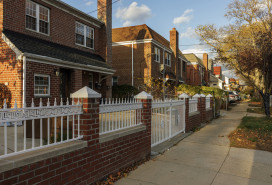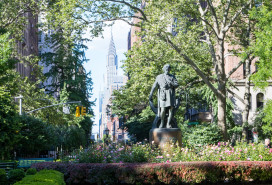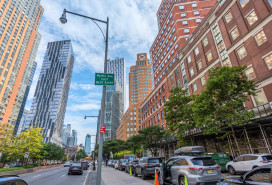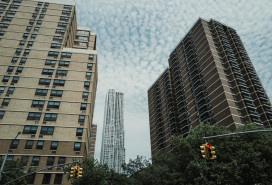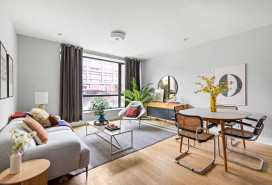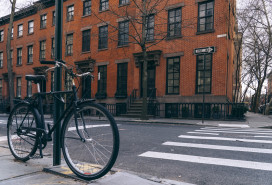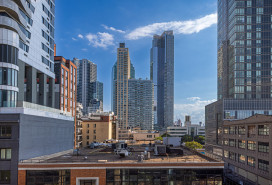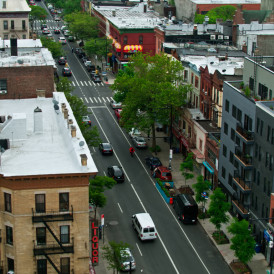Bronx residents voice fears of displacement at third annual gentrification conference

Last weekend, hundreds of Bronx residents came out for a conference focused on staving off gentrification in the borough. The annual event, which is in its third year, was hosted by the Bronx Documentary Center, a non-profit gallery and education center devoted to social justice and cultural exchange, and CASA (Community Action for Safe Apartments), which promotes affordable housing and tenants’ rights in the southwest Bronx. But this time, there was an urgency to the event: The setting, in the New Development Community Center on Jerome Avenue, sits in a neighborhood that will be affected by a revitalization that's part of Mayor Bill De Blasio's housing plan.
On the surface, the proposal sounds fairly positive: the Department of City Planning is examining the potential for changes to a 73-block radius surrounding the thoroughfare, which runs through several residential neighborhoods and commercial areas. The DCP says it’s seeking opportunities to create more affordable housing, as well as engage in clean up efforts, and enhance cultural, educational, and employment services.
Many residents, however, are alarmed at the idea of the city creating a new neighborhood called “Cromwell-Jerome,” as the project was described by the New York Daily News. Despite the mayor’s promise to support existing and build new affordable units, the plan—which also includes the addition of new retail and market-rate apartments—has sparked fears of gentrification among some locals, who staged a protest during a DCP tour. Given that the average median income of the area is $27,000—compare that to the citywide AMI of $52,000—the concerns about displacement seem understandable.
This Jerome Avenue rezoning plan was the most prominent issue on the agenda during Sunday’s conference, with a panel featuring local artists, a CASA rep, and Housing Preservation and Development Commissioner Vicki Been.
Carmen Vega-Rivera, a CASA leader, emceed the event. She says that overall, the participants felt that the city should not move forward with the rezoning plans as they stand. “What’s being proposed does not fit the folks who live here,” Vega-Rivera says, “the folks that have been here and weathered the storms of the 60s and 70s.”
Vega-Rivera says that locals are concerned with preservation of what’s already in place in their neighborhoods. “People want to be heard,” she says. “We have a community that has ideas and vision, and we know what we want. We don’t want the city to come in and dictate, ‘This is what we’re going to give you.’”
She points out that the proposed new affordable units still may remain out of reach for residents, whose AMI is lower than city averages: “The DCP is talking about incentives, but they’re short-term and short-lived,” she says. “You can’t get your foot in the affordable market if you don’t have credit.”
Fitzroy Christian, who is also a CASA leader, agrees. [Note: The following quote has been changed to reflect a correction to an earlier version of this post.] “We believe we can have development without displacement or gentrification,” he says. “We believe displacement is a very costly to families and to communities.”
To that end, the Bronx Coalition for a Community Vision, which formed in response to the Jerome Avenue rezoning plan, released its own policy platform, outlining four principles for strengthening the community: real affordable housing for all, anti-displacement and anti-harassment policies for tenants, good jobs and local hire, and real community engagement. Christian described the plan as “the blueprint to have redevelopment and at the same time preserve the culture of the neighborhood.”
The Bronx Documentary Center is also engaged at the grassroots level, sending photographers to the streets to document how the borough is already changing. Vega-Rivera says that an insider’s perspective is crucial to helping plan for the Bronx’s future. While representatives from DCP may consider themselves well-intentioned, “when you’re not on the frontline you can try to relate to it, but you don’t have ownership over it,” she says.
Related:
Here are a few more reasons not to call the Bronx "the new Brooklyn"

